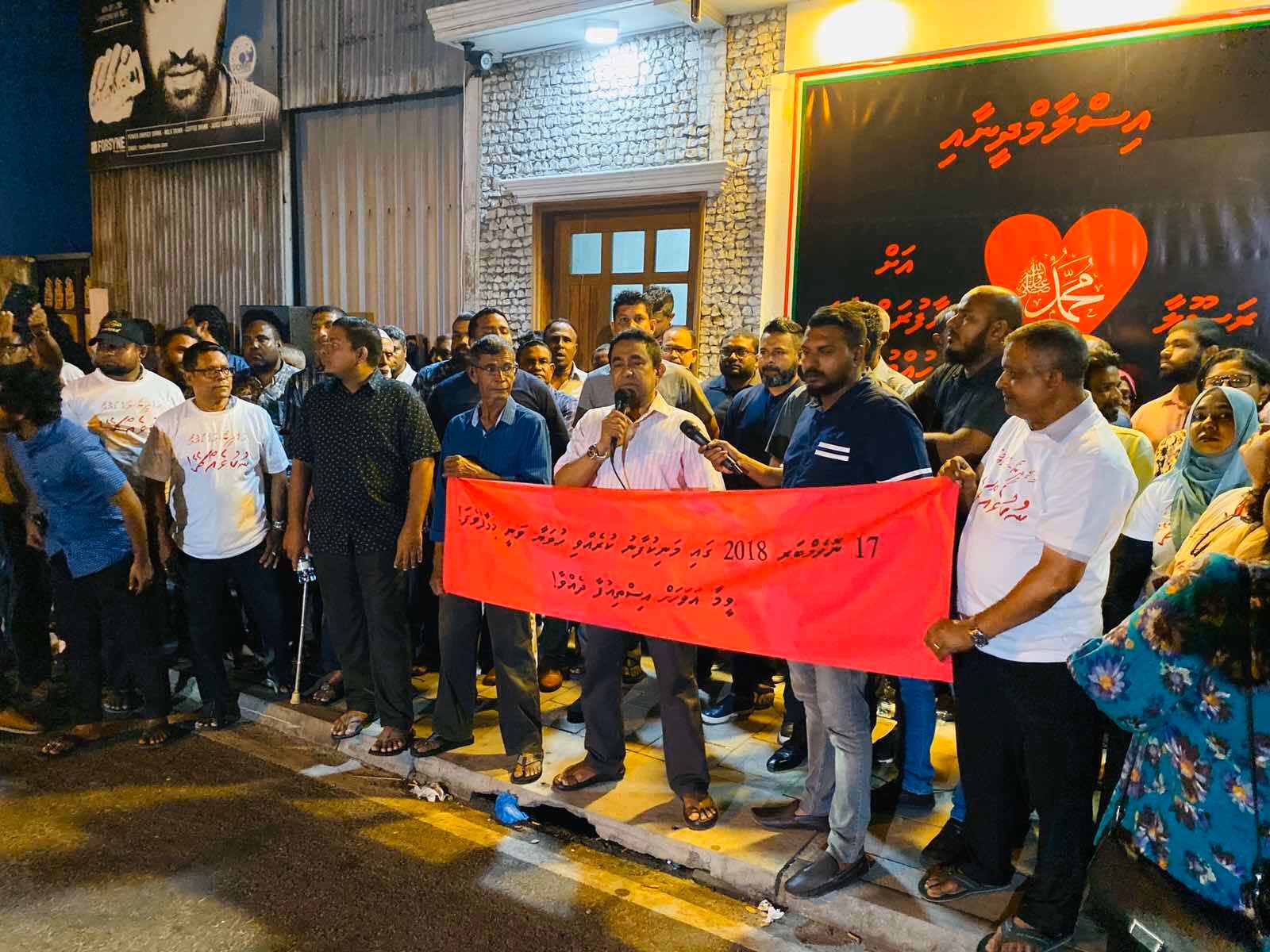Opposition warns of ‘popular uprising’ as ban MDN protests continue
More than 100 councils have backed calls to ban the NGO for “slandering Islam.”

27 Oct 2019, 09:00
The opposition warned of a “popular uprising and inevitable consequences” as protests continued across the country calling on the government to ban NGO Maldivian Democracy Network over the alleged slander of Islam in a 2016 report on radicalisation.
Recalling the campaign to “defend Islam” that preceded former president Mohamed Nasheed’s resignation in February 2012, the Progressive Congress Coalition warned in a statement issued on Saturday night that the ruling Maldivian Democratic Party’s “obsession with recalibrating the 800-year-old norms and practices to related to the Sunni Muslim faith of Maldivians” could lead to the overthrow of the second MDP government, stressing the “people’s deep-seated devotion to the Islamic faith and their willingness to jealously guard their national identity.”
Religious scholars launched the campaign to ban MDN earlier this month after screenshots of offensive sections in the report were widely shared on social media. The government reacted by suspending the NGO after the Islamic ministry asked police to investigate. But the campaign continued unabated on social media and protest marches took place on several islands over the past three weekends.
On Thursday night, former president Abdulla Yameen joined a demonstration staged by opposition supporters outside the Progressive Party of Maldives office in Malé. The Maldivian people will not tolerate freethinkers or liberal ideologies in the name of democracy when it comes to matters of religion, the opposition leader declared.
Become a member
Get full access to our archive and personalise your experience.
Already a member?
Discussion
No comments yet. Be the first to share your thoughts!
No comments yet. Be the first to join the conversation!
Join the Conversation
Sign in to share your thoughts under an alias and take part in the discussion. Independent journalism thrives on open, respectful debate — your voice matters.




